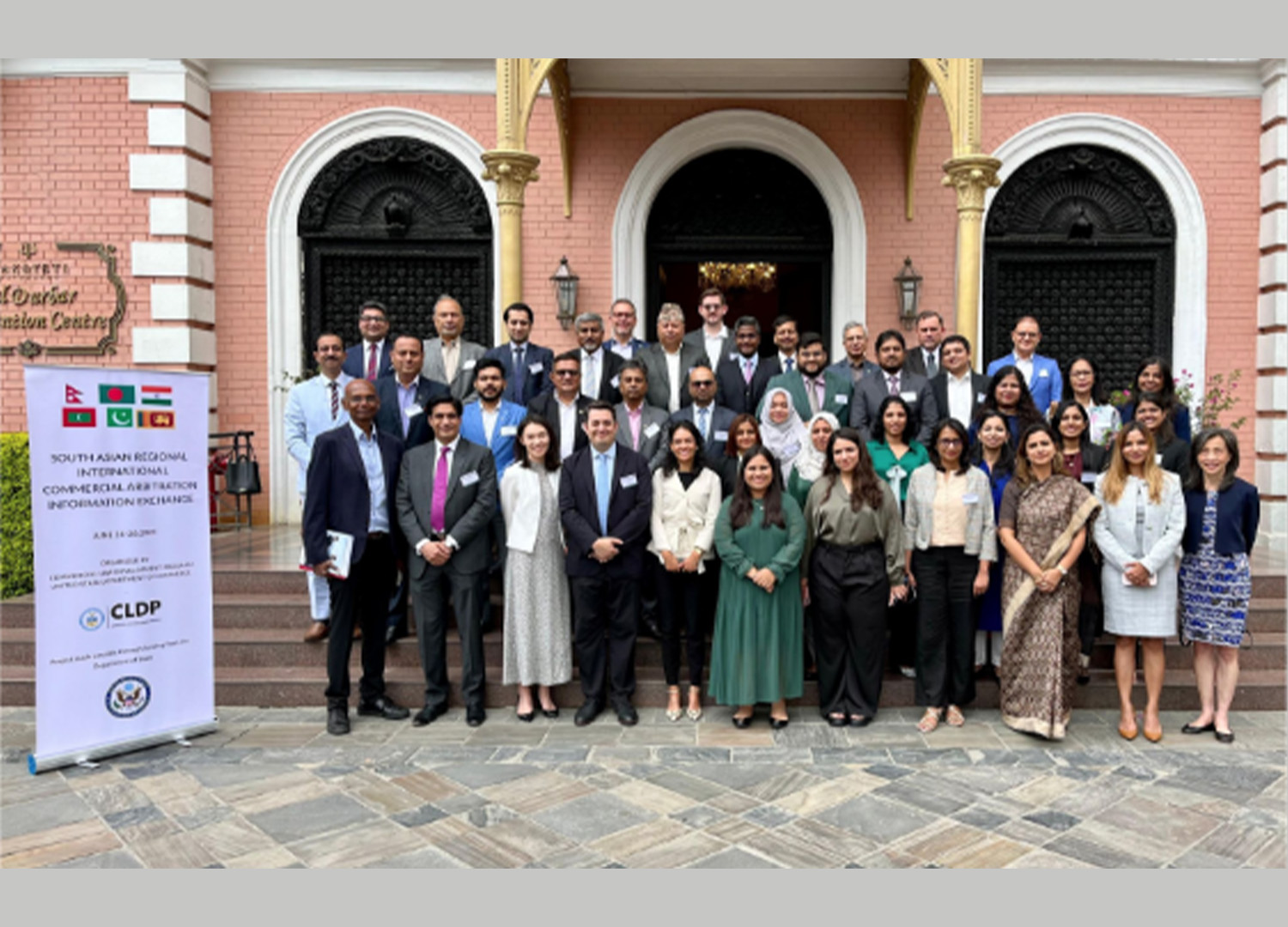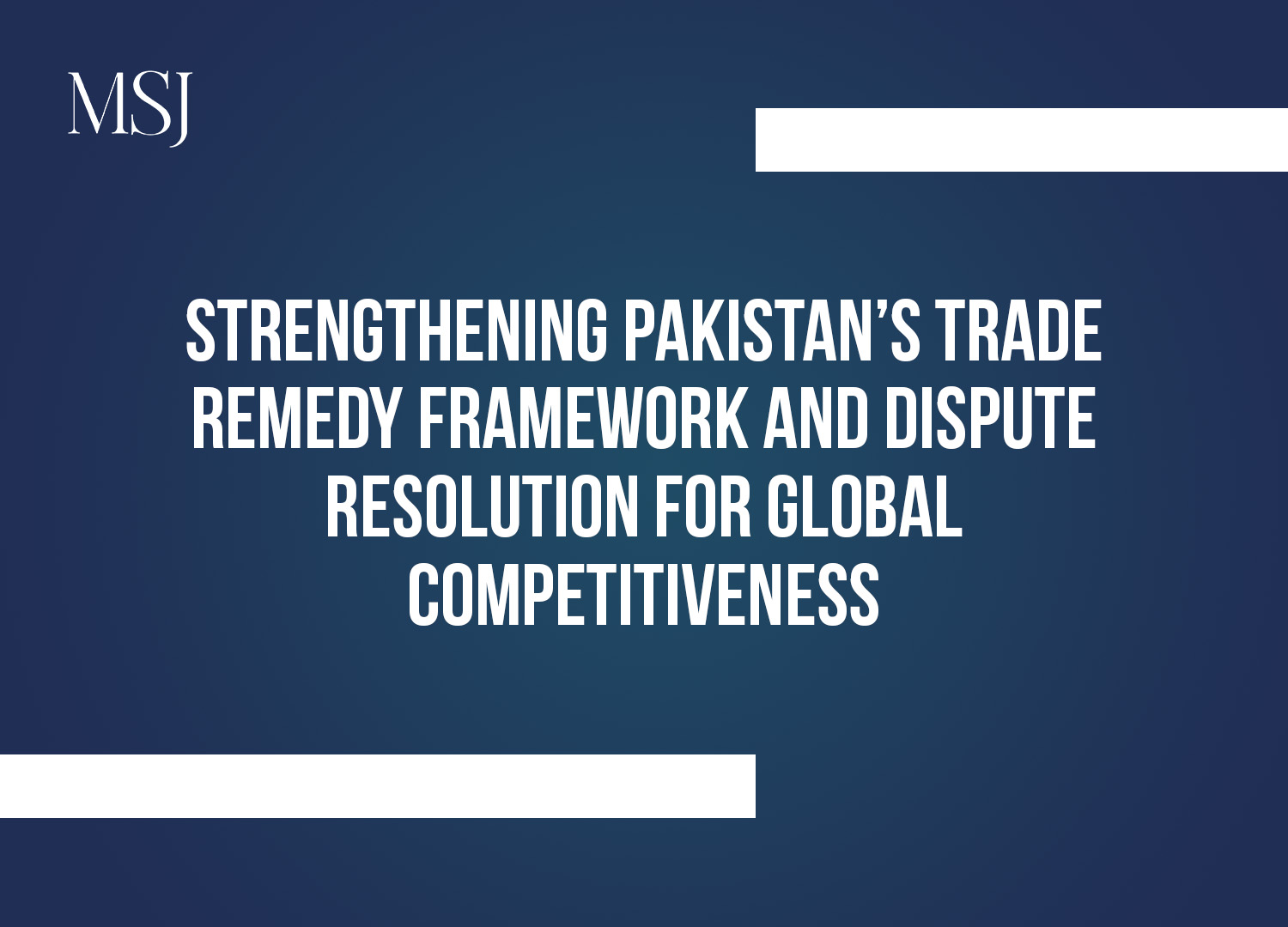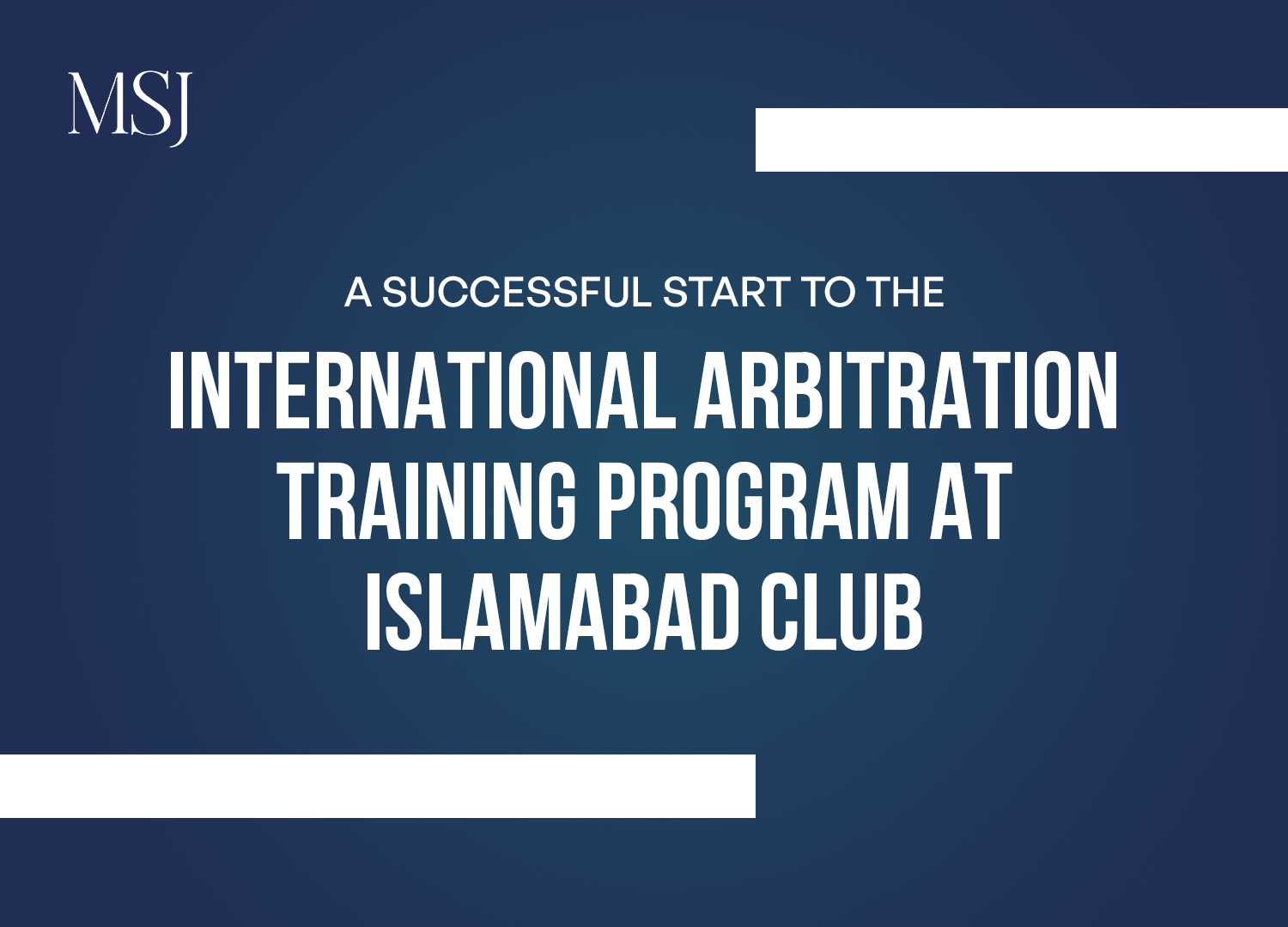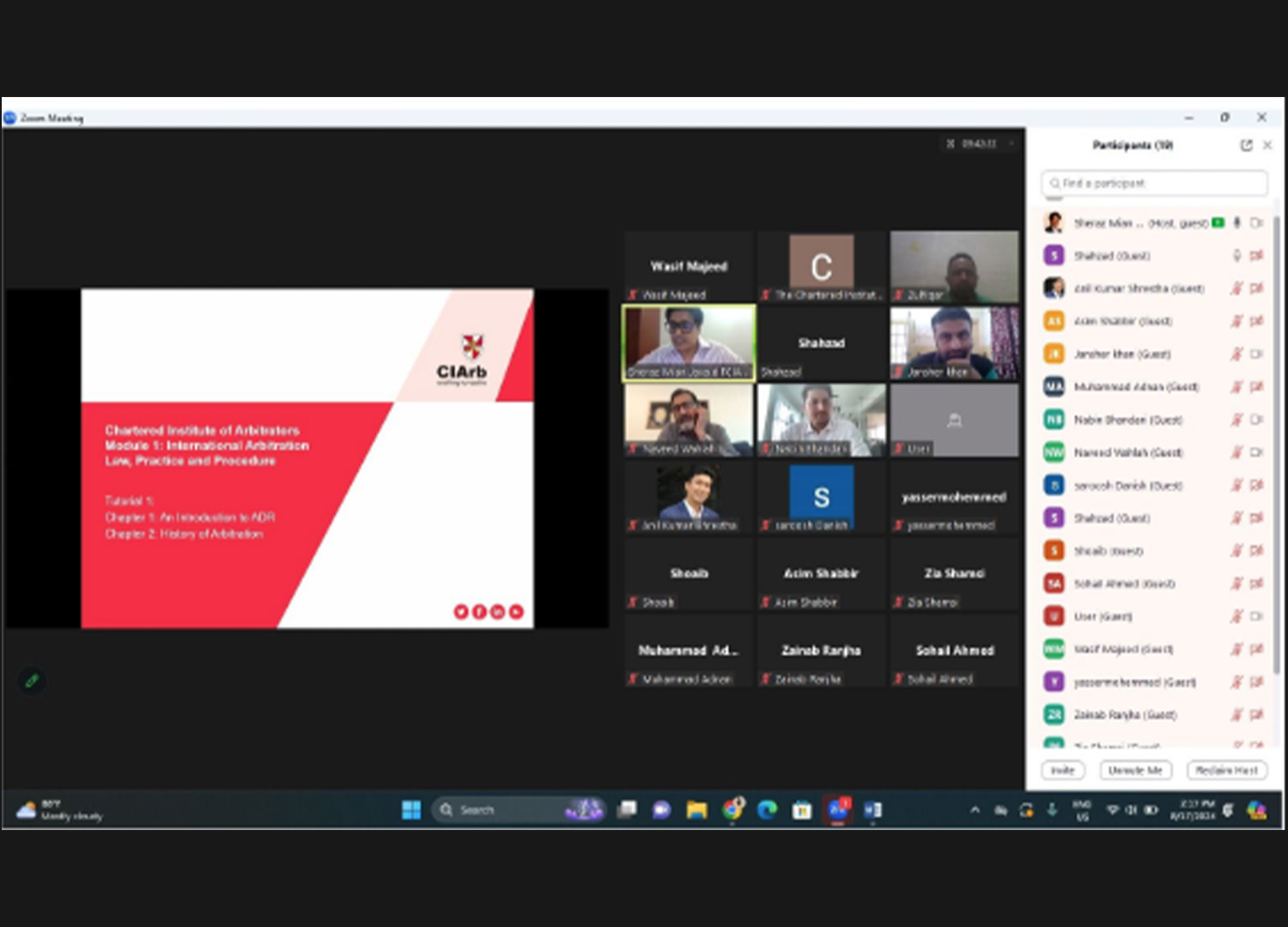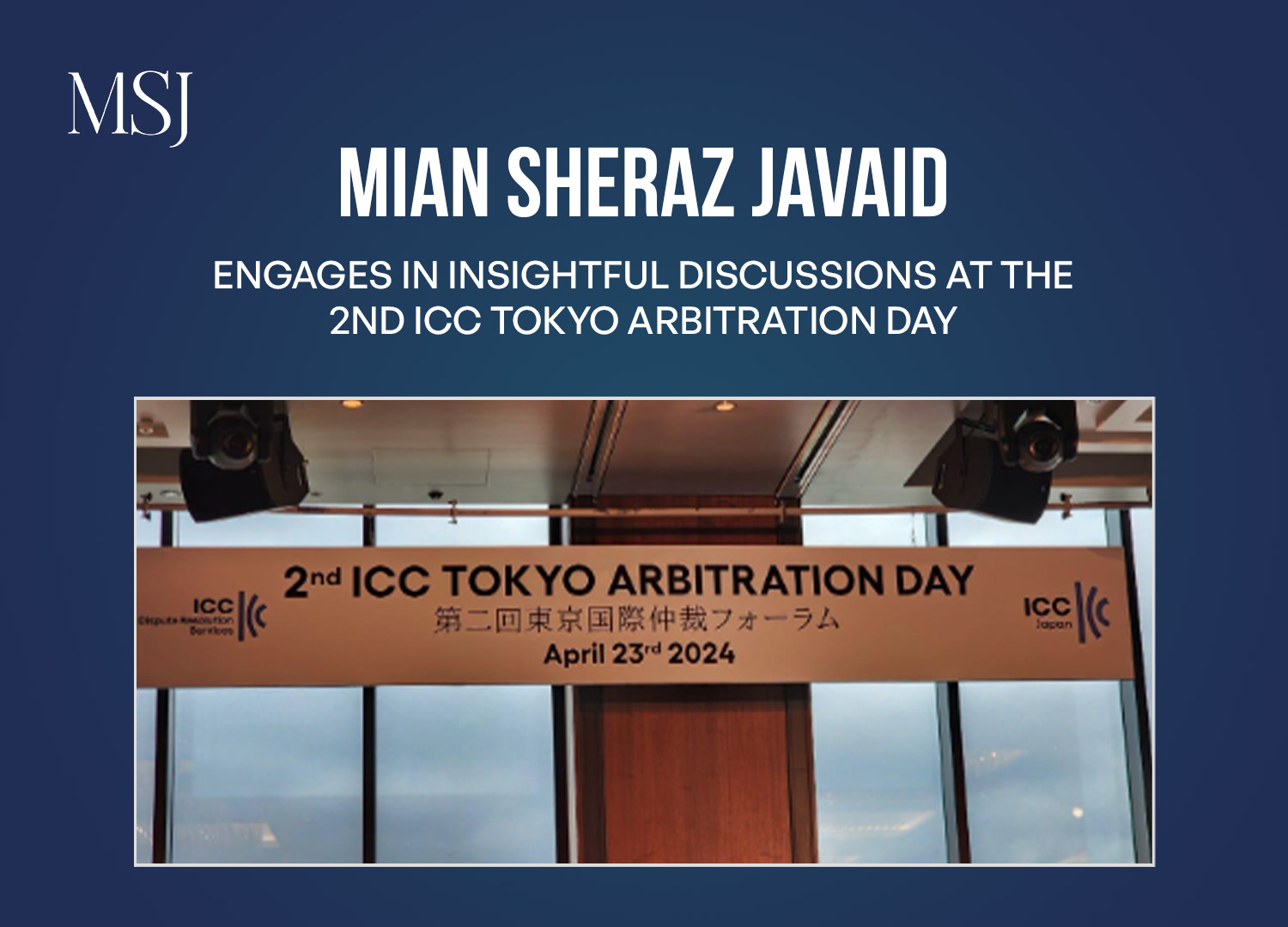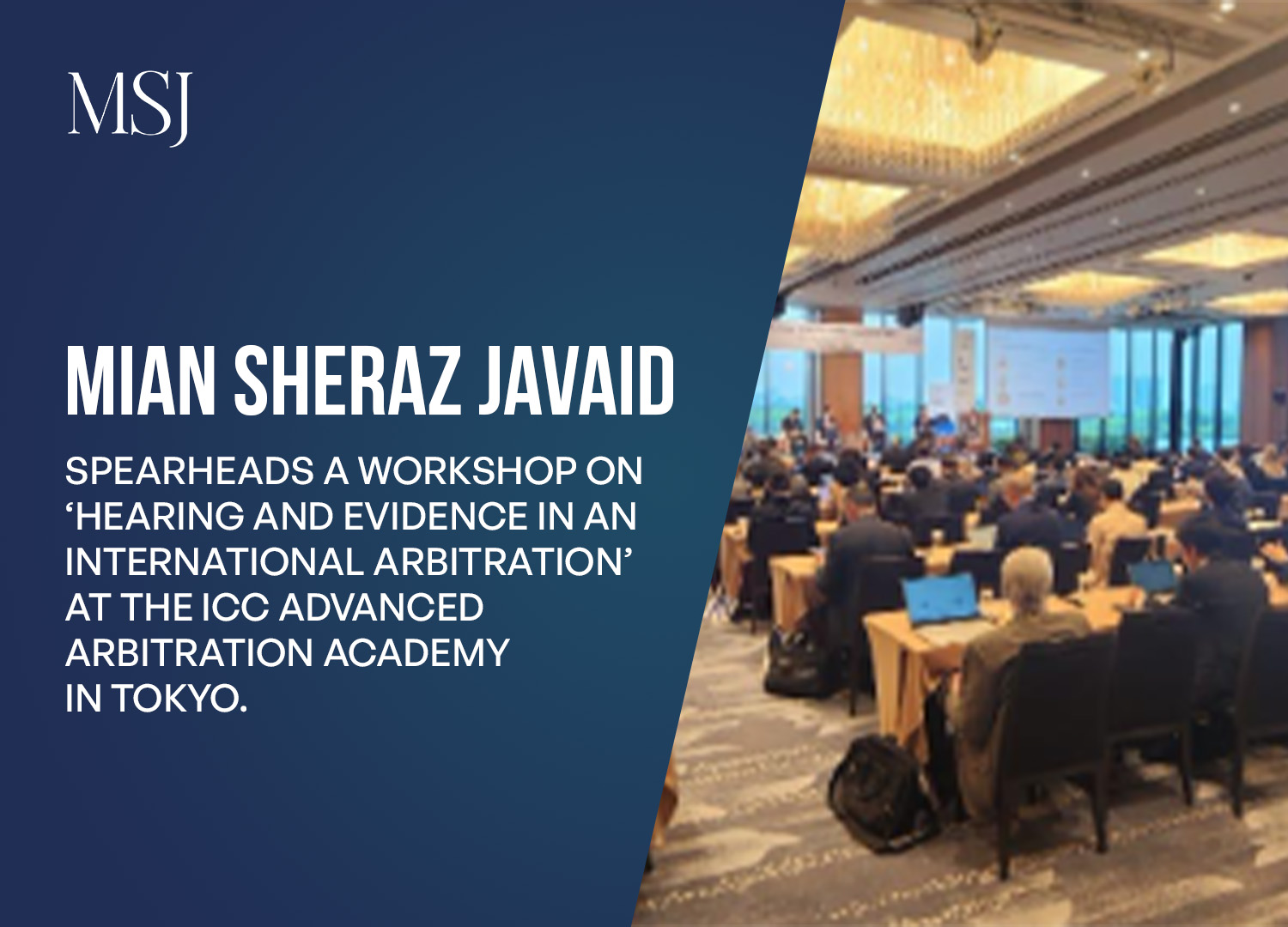Ciarb Pakistan Branch Kicks Off Academic Year 2025 with International Arbitration Training
The first session of the program addressed key foundational elements of international arbitration. During the six hours of Saturday and Sunday, learners immersed themselves in an array of critical topics that constitute the foundation of the practice of arbitration. Some of these were the different Dispute Resolution Processes, the History of Arbitration, and the Three Pillars of International Arbitration. The discussions also addressed Growing Global Harmonisation, Differing Statutory Approaches, and a number of other critical areas that paved the way for further in-depth examination of this very niche area of law.
Mian Sheraz Javaid headed this illustrious group, and he observed how the diversity of participants added depth to the learning process, reflecting on how cross-border views can yield rich insights into the changing face of arbitration. Sheraz’s methodology balanced academic precision with real-life examples to ensure that participants not just received a theoretical grasp of arbitration but also a concrete feeling of its practical uses.
“I am truly excited to kickstart this academic year with such an incredible group of professionals,” said Sheraz. “The range of participants’ backgrounds—from seasoned practitioners to young professionals looking to specialize in arbitration—created a vibrant environment for exchange. The session’s engaging format, combined with in-depth discussions, gave everyone a solid grounding in international arbitration, a field that is both challenging and rewarding.”
The inaugural session was an essential introduction to the wider curriculum of Ciarb's Module 1, setting a strong foundation for weeks to come. The comprehensive nature of the program tackles arbitration principles, the function of arbitral institutions, the mechanics of arbitral hearings, and so much more. It is intended to provide participants with the necessary skill and knowledge to confront the intricacies of international arbitration, which is rapidly becoming a key weapon for the resolution of cross-border commercial disputes.
This session takes advantage of the Ciarb Pakistan Branch's strong momentum in 2024. The organization finished last year on a high note by successfully running three Module 1 programs and two Accelerated Routes to Fellowship. These achievements indicate an increasing interest and dedication to arbitration in the region, highlighting the necessity for specialized training to address the rising demand for qualified professionals in the industry.
As the Pakistan Branch sets foot in a fresh academic year, Sheraz hailed the prospects for arbitration in the future in Pakistan. "We are at the crossroads for the growth of arbitration as the preferred mode for resolving disputes in Pakistan," he stated. "It is our vision to educate professionals to achieve the gold standards of the Chartered Institute of Arbitrators, enriching them with the knowledge and skills necessary to excel in this dynamic profession. As we develop expertise in Pakistan, we also intend to create a membership community of arbitration experts who can confidently tackle the challenges of international disputes."
Sheraz's enthusiasm for developing excellence in international arbitration could be seen throughout the session, as he involved participants with both theoretical information and practical know-how. He also underscored the position of arbitration in Pakistan's increasing commercial sector, emphasizing the development of a strong legal framework that is capable of addressing international disputes effectively.
The training also stressed the need for establishing an international network of arbitral professionals. Not only were participants learning from their trainer but also getting to share ideas with peers from all jurisdictions. Diversity in the group was a demonstration of the globalization of arbitration where every participant carried a different input based on what they knew or experienced locally.
In the future, Sheraz is hopeful for the continued growth of international arbitration in Pakistan. He views the increasing popularity of arbitration as a positive indication of the nation's willingness to adopt global standards in legal practice. Through the training of professionals in arbitration and equipping them with the proper tools, Ciarb Pakistan Branch is helping to strengthen Pakistan's place on the global legal platform.
"People's passion, commitment, and drive over this weekend are a reminder of our own determination to move arbitration forward in Pakistan," Sheraz commented. "With ongoing investment in education and training, we are assisting in creating the future of dispute resolution in Pakistan and more broadly."
The session ended with the attendees vouching for their satisfaction with the holistic nature of the training and their readiness to pursue their learning. Several of the attendees also commended the Ciarb for raising the level of practice in arbitration and for ensuring professionals are well capable of serving the challenges of international disputes.
As the 2025 academic year goes on, Ciarb Pakistan Branch is set to further extend its reach, conducting more training sessions and establishing a network of arbitration specialists in Pakistan and beyond. The success of Module 1's first session is a positive beginning to what promises to be a revolutionary year for arbitration in Pakistan.
For Mian Sheraz Javaid and the Ciarb Pakistan Branch, this is only the start. The organization's dedication to furthering international arbitration education and best practice is an important step in ensuring that Pakistan stays ahead of the curve when it comes to international arbitration. With these efforts, the country is ready to play an even greater role in international dispute resolution in the coming years.
Subscribe to get latest Updates & Activities.
Follow us on Medium, Twitter, Facebook, YouTube, and Dribbble.



